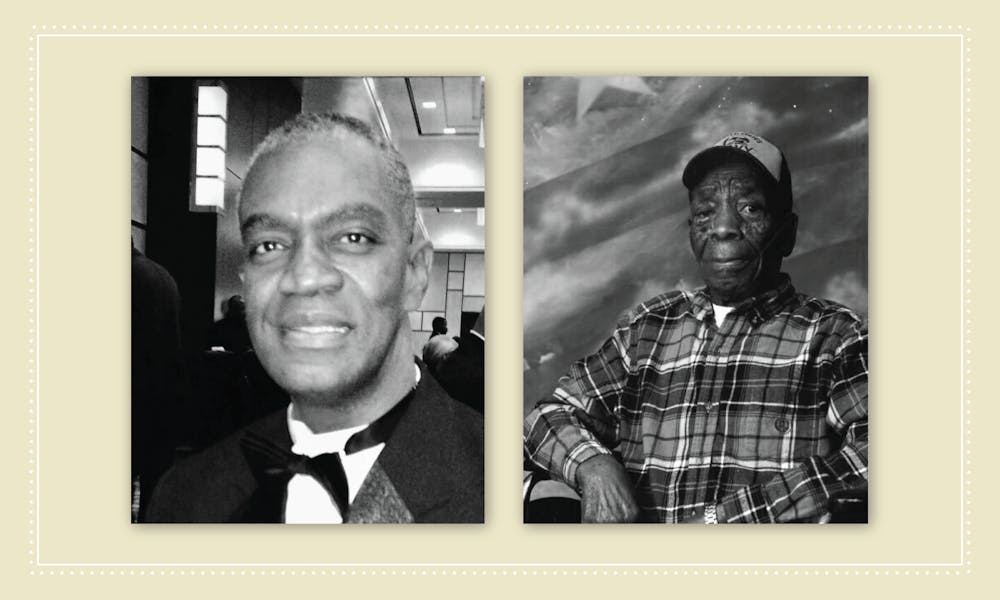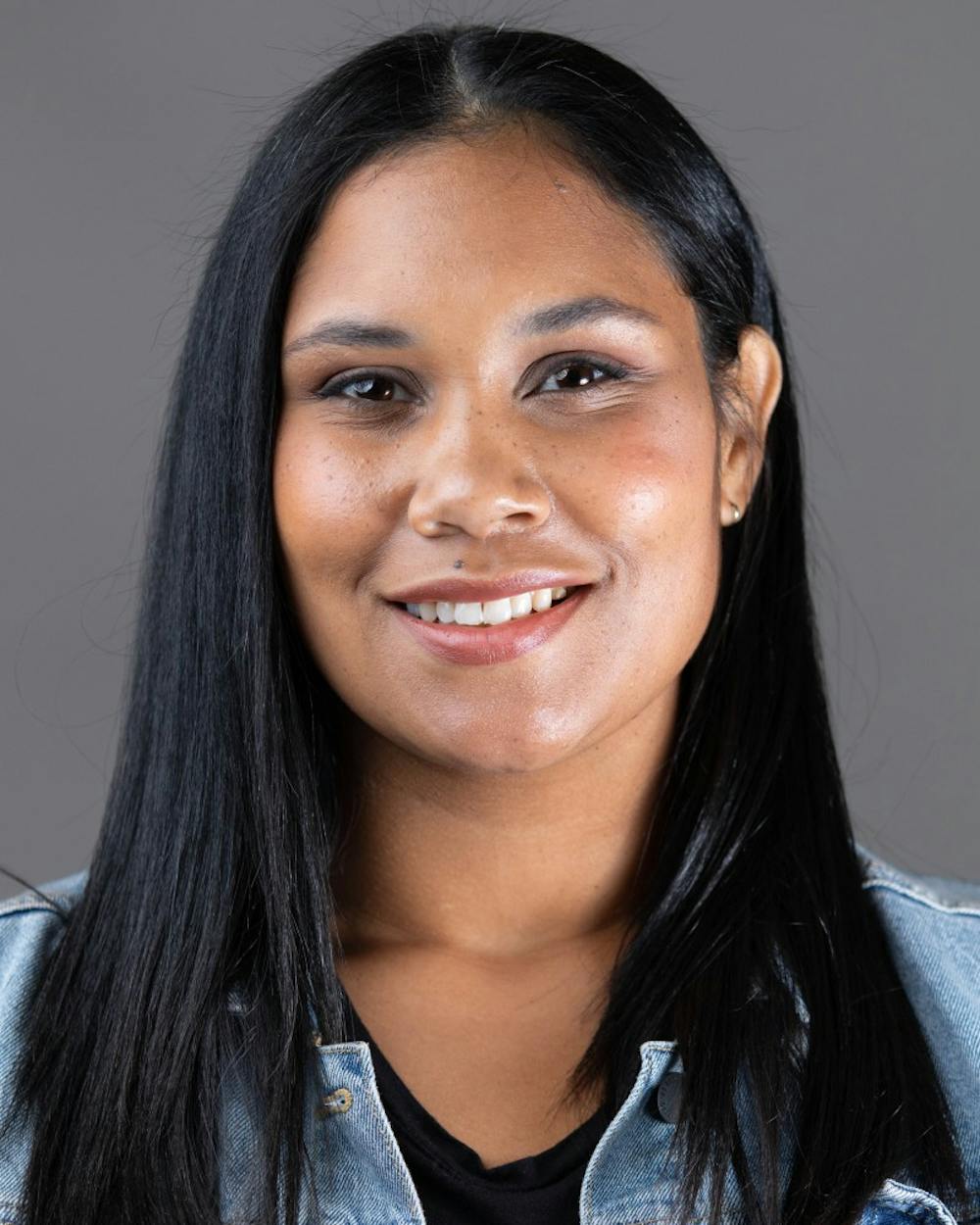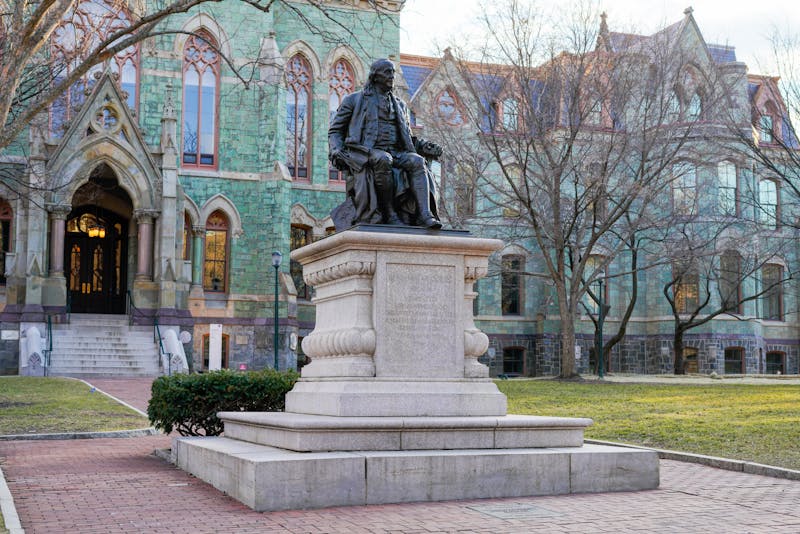
Both Michael Murrell (left) and Harold Edward Gooding (right) have passed due to COVID-19-related health complications. (Photos from Jessica Gooding)
Six years ago my friend was accepted to Morehouse School of Medicine. I was excited to visit him in Atlanta and stop by my cousin Michael’s Murrell’s Cafe. Eventually, time got ahead of me and I never made it to Atlanta.
At the end of April, Michael died at age 65 from COVID-19 after spending over a month on a ventilator. Everyone close to him was, and continues to be, devastated. Michael was a proud father and grandfather. As a member of the Omega Psi Phi fraternity, he was powerfully committed to uplifting people. His dreams were not finished.
Mike had just submitted a proposal for his newest business creation, a restaurant in the historic Union Station in Winston-Salem, N.C. This restaurant would have been located on the campus of his alma mater, Winston-Salem State University. This school was important to him. It was there that he worked the concession stand for football games and cultivated his passion for food.
He also owned Murrell’s Old Plant Diner in Trenton, N.C., his hometown. Local students, politicians, and civil rights leaders found a supportive place to meet and eat within Mike’s restaurants. He provided jobs to community members and created a scholarship at Winston-Salem State University to help support young students. Since his passing, many people have found comfort in Michael’s achievements, but the unfortunate circumstances of his passing linger.
Trenton, N.C. is a small town that holds a big place in my heart. My father was one of ten children born there. The eldest of those children was my Uncle Harold. He was born in 1925 on the sharecropping farm where my grandparents raised all of their children.
He was the kind of uncle that played around constantly. As a kid, I could never tell if Uncle Harold was being serious. He once insisted that the pack of goats that lived next door to our family home in Trenton were going to jump over the gate and bite me unless I helped him get some fresh eggs from the chicken coop out back. He didn’t have to ask me twice. I was sure he had a special command for the goats. I was always up for an adventure with him.
Whenever we drove around Trenton in his truck, stopping at the local Piggly Wiggly or to pick up freshly picked collard greens at a local family owned farm, he embraced every face he recognized. My shy demeanor rarely budged, but he always made a point to give me an elaborate introduction to everyone we crossed paths with. Uncle Harold was a silly man — he could easily make a person laugh at the perfectly normal buttons on their shirt with a few of his grins.
When I returned to visit North Carolina in 2012 after my dad passed away, Uncle Harold made sure we sat down and looked through his large collection of photo albums. His photographs captured the distinct elements of being a Black man throughout the early and mid-20th century. Each album was its own piece of art. The last time I visited my uncle was four years ago, when he was in his nineties. A few months later he moved into a veterans’ nursing facility. There, he was visited by family members and friends often and continued to engage in his humorous banter.
Uncle Harold died last month. His nursing facility stopped all visitation in the weeks before his death due to COVID-19 precautions. The nurse I spoke to over the phone confirmed their strict policy and my assumptions about my uncle’s lonely final days. He died without the company of anyone close to him. There was no funeral to celebrate his extraordinary life. He lived through World War II, the Great Depression, Jim Crow, the Civil Rights Movement, Apollo 11, and many other remarkable moments in history. He was a U.S. military veteran. He did not deserve to die alone. No one does, but that is part of the trauma the virus inflicts.
COVID-19 has caused great pain all over the planet. Families around the world are dealing with unimaginable circumstances. My cousin Micheal and Uncle Harold only offer an unfortunate sliver of COVID-19’s impact. As of June 6, the death toll was over 110,000 people. Around the world, people are feeling the same horrendous pain my family has felt. As states begin to open, we must acknowledge that COVID-19 has not disappeared and its rampage will continue to rattle families like mine.
The precautions many of us are forgetting about are still very relevant for vulnerable communities including people with heart disease, diabetes, high cholesterol, high blood pressure, chronic obstructive pulmonary disease, and obesity — as well as elderly and young people. COVID-19’s probable path of destruction remains relevant. As summer begins, let's respect the invaluable lives we have already lost by acknowledging our continuous duty to be safe and proactive.

JESSICA GOODING is a rising College senior from Philadelphia, Pennsylvania studying History and English. Her email address is jgooding@sas.upenn.edu.
The Daily Pennsylvanian is an independent, student-run newspaper. Please consider making a donation to support the coverage that shapes the University. Your generosity ensures a future of strong journalism at Penn.
Donate






